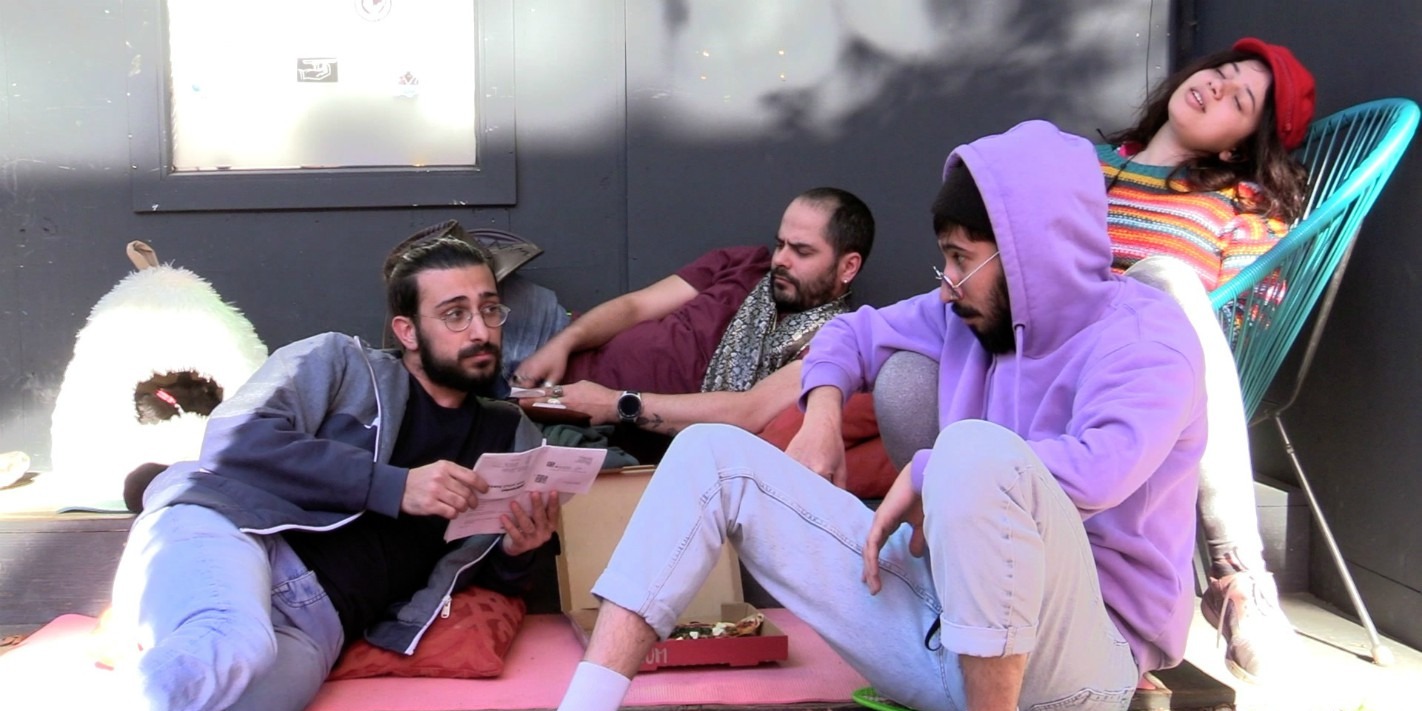In German city of Hamburg, artists and refugees produce their own version of the Ramadan musalsal
Ramadan is peak TV viewing season across the Middle East as millions consume the always highly-anticipated musalsals, or drama series.
Last year, a group of artists and refugees in the German city of Hamburg decided to create their own. But instead of the often star-studded Arabic musalsal produced in Egypt or Syria, “Ramadram” is an experimental, multilingual self-made soap opera.
“We weren’t happy with the representation of refugees in the German media,” series director Nadine Jessen told Salaam Gateway.
“The production team thought we should be proactive and do something about it.”
The team uploads a new episode to YouTube each day till the end of Ramadan, on May 23. Storylines are taken from real life, but fictionalized and improvised. The ten-minute long satires mostly involve love, jealousy, intrigue, and humor.
Dramatic adviser and curator at production venue Kampnagel, Jessen has over 20 years’ experience in theater and opera production and founded several artistic groups, including New Media Socialism, which is responsible for the Ramadram genesis.
Video artist Judith Rau takes care of the visualization process. “We filmed a year ago, and over the past couple of months, I’ve been cutting and putting everything together,” Rau told Salaam Gateway.
“We don’t have a predefined script. A large part of the impromptu storylines developed during the shooting,” Rau explained.
The episodes feature an eclectic Arabic, English, and German language mix, so she often works together with Arabic speaking editors.
The artists’ cultural backgrounds and their performance experiences are as varied as the languages they perform in. Hailing from Syria, Gambia, Nigeria, and Germany, some have rarely or never been in front of a camera.
Anas Aboura, who plays Issa, a character who takes liberties with the strict Ramadan practices as he embarks on a dubious project with a music producer, was already involved in underground art projects in his native Syria, a center of Ramadan drama production.
Aboura has no formal acting training but he gives his best “just being in the scene and trying to get the maximum,” he told Salaam Gateway. “It seems to be working,” he added.
“There is no performance principle,” explains director Jessen, “none of us has done a TV show before.”
“It’s not about being an expert. It’s all about attitude and empowerment.”
Ramadram was shot exclusively in the Migrantpolitan on Kampnagel by and with community members. The Migrantpolitan is “an action space in which diasporic artists and local artists engage in an exchange process, jointly develop transcultural strategies and try out new aesthetic practices,” says its website.
Kampnagel is a production venue for the performing arts based on the premises of an 1865-founded mechanical engineering factory. Since 1982, the theater has been hosting and producing cultural activities, drama, dance performances, and concerts.
“Kampnagel stands for solidarity and community and lives openness, avant-garde, and artistic freedom,” said Dr. Carsten Brosda, Hamburg Senator for Culture and Media, in a May 15 press release informing the public about the city becoming the sole shareholder of Kampnagel.
“In today’s world, we need such places in our urban society.”
(Reporting by Petra Loho; Editing by Emmy Abdul Alim [email protected])
© SalaamGateway.com 2020 All Rights Reserved
